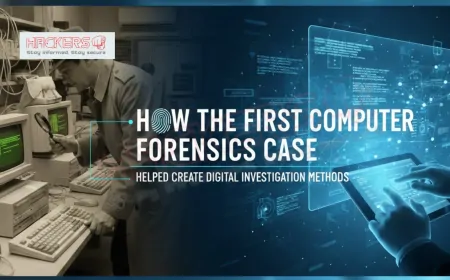How Can You Build a Cyber Law Compliance Service Business (GDPR, IT Act, HIPAA)?
In today’s digital world, businesses handle vast amounts of sensitive data, from customer information to medical records. With this comes the responsibility to comply with cyber laws like the General Data Protection Regulation (GDPR), India’s Information Technology Act (IT Act), and the Health Insurance Portability and Accountability Act (HIPAA). Non-compliance can lead to hefty fines, legal battles, and damaged reputations. For entrepreneurs, this creates a golden opportunity to build a cyber law compliance service business, helping companies navigate these complex regulations while staying secure and trustworthy. This blog post explores how you can start and grow a compliance service business focused on GDPR, IT Act, and HIPAA. From understanding the regulations to building a scalable business model, we’ll provide practical steps and insights to help you succeed in this high-demand field. Whether you’re a tech enthusiast or a business visionary, this guide will show you how to turn compliance into a thriving enterprise.

Table of Contents
- Understanding GDPR, IT Act, and HIPAA
- Opportunities in Cyber Law Compliance Services
- Steps to Build Your Compliance Service Business
- Key Compliance Services: At a Glance
- Challenges and How to Overcome Them
- Conclusion
- Frequently Asked Questions
Understanding GDPR, IT Act, and HIPAA
Before diving into the business side, let’s break down the key regulations your service will address:
- GDPR (General Data Protection Regulation): A European Union law enforced since 2018, GDPR protects EU citizens’ personal data. It requires businesses to secure data, obtain consent for data use, and report breaches within 72 hours. Non-compliance can lead to fines up to €20 million or 4% of annual global revenue.
- IT Act (Information Technology Act, 2000): India’s primary cyber law governs data protection and cybersecurity. It mandates secure handling of sensitive personal data and outlines penalties for breaches, especially for companies operating in India or handling Indian citizens’ data.
- HIPAA (Health Insurance Portability and Accountability Act): A U.S. law that protects patient health information. It requires healthcare providers and related businesses to implement safeguards, train staff, and ensure data confidentiality, with fines up to $1.5 million for violations.
These laws share a common goal: protecting sensitive data. A compliance service business helps organizations meet these requirements, avoiding penalties and building trust with customers.
Opportunities in Cyber Law Compliance Services
The growing complexity of cyber laws creates a booming market for compliance services. Here are key opportunities for entrepreneurs:
- High Demand Across Industries: From tech startups to hospitals, businesses need help navigating GDPR, IT Act, and HIPAA, creating a broad client base.
- Recurring Revenue: Compliance is an ongoing process, offering opportunities for subscription-based services like audits or training.
- Global Market: GDPR applies to any business handling EU data, while IT Act and HIPAA have international implications, allowing you to serve clients worldwide.
- Consulting and Training: Many businesses lack in-house expertise, creating demand for consulting, staff training, and policy development.
- Technology Solutions: Develop tools like compliance management software or data encryption platforms tailored to these regulations.
- Partnerships: Collaborate with law firms, IT companies, or cloud providers to offer comprehensive compliance solutions.
Steps to Build Your Compliance Service Business
Starting a cyber law compliance service business requires careful planning and execution. Here’s how to get started:
- Gain Expertise: Study GDPR, IT Act, and HIPAA thoroughly. Consider certifications like Certified Information Privacy Professional (CIPP) or CompTIA Security+ to build credibility.
- Identify Your Niche: Focus on specific industries (e.g., healthcare for HIPAA) or services (e.g., audits, training) to stand out in the market.
- Develop a Business Plan: Outline your services, target market, pricing, and marketing strategy. Include a budget for tools, staff, and certifications.
- Build a Team: Hire experts in law, cybersecurity, and IT, or partner with freelancers to keep costs low in the early stages.
- Offer Scalable Services: Start with affordable offerings like compliance assessments or training, then expand to software solutions or managed services.
- Leverage Technology: Use tools like compliance management platforms (e.g., OneTrust) or develop your own to streamline client processes.
- Market Your Services: Create a website, share case studies, and use social media to reach businesses. Attend industry events to network with potential clients.
- Stay Updated: Cyber laws evolve, so subscribe to regulatory updates and join professional networks to stay informed.
Key Compliance Services: At a Glance
The table below highlights core services your business can offer to help clients meet GDPR, IT Act, and HIPAA requirements.
| Service | Description | Relevant Regulation |
|---|---|---|
| Compliance Audits | Assess systems and processes to ensure compliance. | GDPR, IT Act, HIPAA |
| Staff Training | Educate employees on data protection practices. | HIPAA, GDPR |
| Data Protection Policies | Develop policies for secure data handling. | IT Act, GDPR |
| Breach Response Plans | Create plans to manage and report data breaches. | GDPR, HIPAA |
Challenges and How to Overcome Them
Building a compliance service business isn’t without obstacles. Here are common challenges and solutions:
- Complex Regulations: Cyber laws are intricate. Overcome this by investing in continuous learning and hiring legal experts.
- High Competition: The compliance market is crowded. Differentiate by specializing in a niche or offering exceptional customer service.
- Limited Client Budgets: Small businesses may resist high fees. Offer tiered pricing or subscription models to make services accessible.
- Evolving Laws: Regulations change frequently. Stay ahead by subscribing to updates from regulatory bodies and industry groups.
By addressing these challenges proactively, you can build a resilient and client-focused business.
Conclusion
Starting a cyber law compliance service business focused on GDPR, IT Act, and HIPAA is a promising venture in today’s data-driven world. By helping businesses navigate complex regulations, you can prevent costly penalties, build trust, and tap into a growing market. With the right expertise, a clear niche, and scalable services, entrepreneurs can create a profitable business that makes a real impact. While challenges like competition and evolving laws exist, strategic planning and a commitment to staying updated will set you up for success. Now is the time to seize this opportunity and help businesses thrive in a secure, compliant future.
Frequently Asked Questions
What is a cyber law compliance service?
It’s a business that helps organizations meet legal requirements for data protection, like GDPR, IT Act, or HIPAA.
What is GDPR?
GDPR is an EU law that protects personal data, requiring secure handling and breach reporting, with hefty fines for violations.
What is the IT Act?
The IT Act is India’s cyber law governing data protection and cybersecurity, especially for sensitive personal data.
What is HIPAA?
HIPAA is a U.S. law that protects patient health information, mandating safeguards and staff training for healthcare businesses.
Why do businesses need compliance services?
Compliance services help avoid fines, protect data, and build customer trust by meeting legal requirements.
Who needs GDPR compliance?
Any business handling EU citizens’ data, regardless of location, must comply with GDPR.
What are the penalties for non-compliance?
GDPR fines can reach €20 million or 4% of revenue, HIPAA up to $1.5 million, and IT Act penalties vary by violation.
Can small businesses afford compliance services?
Yes, tiered pricing or subscription models make compliance services accessible to small businesses.
What is a compliance audit?
A compliance audit assesses a business’s systems and processes to ensure they meet regulatory requirements.
How can I start a compliance business with no experience?
Gain expertise through certifications, partner with experts, and start with simple services like training or assessments.
What is a data breach?
A data breach is when unauthorized individuals access sensitive information, like customer or health data.
How do I market a compliance service business?
Create a website, share case studies, use social media, and network at industry events to attract clients.
What tools help with compliance services?
Tools like OneTrust or Varonis streamline compliance tasks, such as audits or data mapping.
Can I focus on just one regulation?
Yes, specializing in GDPR, IT Act, or HIPAA can help you target specific industries or markets.
What is a breach response plan?
A plan outlines steps to manage and report data breaches, required by GDPR and HIPAA.
Do I need a legal background?
Not necessarily, but understanding cyber laws or partnering with legal experts is crucial.
How do I stay updated on regulations?
Subscribe to updates from regulatory bodies, join industry groups, and follow legal news.
What industries need compliance services?
Tech, healthcare, finance, and e-commerce are key industries needing GDPR, IT Act, or HIPAA compliance.
Can technology replace compliance services?
Technology helps, but human expertise is needed for audits, training, and policy development.
How profitable is a compliance service business?
With recurring revenue models and high demand, compliance services can be highly profitable.
What's Your Reaction?










































































